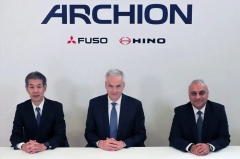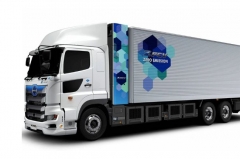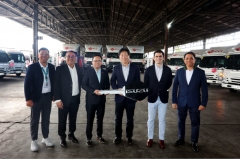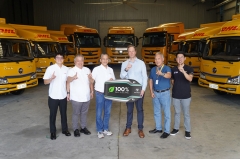
Hino Motors, a manufacturer of trucks and buses, has announced its commitment to mirror the approach of its parent company, Toyota Motor Corporation, by advocating for diverse powertrains. This initiative aligns with their goal of achieving carbon neutrality by the year 2050, encompassing the entire lifecycle of Hino vehicles, from production and usage to disposal.
Hino is exploring the possibility of using a single platform for its various model ranges, intending to equip each with the most suitable power source based on the manufacturer's assessment. This includes options such as battery electric, hydrogen fuel-cell, or plug-in hybrids, tailored to the specific needs of each application.
"Our policy for making vehicles carbon-neutral is to reduce consumption by 'improving mileage,' 'adopting electric vehicles,' 'switching to low-carbon fuel,' and 'streamlining the entire logistic system' and using appropriate types of vehicles according to purpose while 'making internal-combustion vehicles carbon-neutral' and 'distributing electric vehicles.'"

In addition to using a single platform across its product range, Hino is also assessing the feasibility of a "unified engine structure for fuel diversity." This initiative involves the creation of a foundational internal combustion engine capable of running on diesel or can be adapted to run on liquid compressed natural gas, gaseous compressed natural gas, and hydrogen gas. This approach is designed to distribute research and development costs in an “effective and economical manner” according to Hino.

As for electric trucks, Hino has also come up with a system to lower operating costs by using a standardized battery, which can then be used alone, or in batches of four, or six, or more, depending on the application. This means customers will buy the vehicle and battery (or batteries) separately. Trucks and buses can, therefore, be sold at a price that does not include the cost of the battery.

All of these are to come so nothing tangible will be felt from Hino Motors right now. Hopefully, Hino will remain true to this commitment and we’ll see a new generation of cleaner and safer trucks from the Japanese truck brand.









